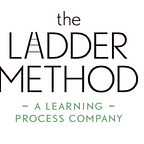What are Executive Function Challenges
We think that we all can agree with the fact that life isn’t exactly a bed of roses: every day holds new challenges and obstacles that you’ve got to overcome. Even the average individual tends to get tired and overwhelmed with the persistent effort of trying to keep it all together and not crumble with exhaustion. Imagine having to go through the demanding rituals of life as a person with weak executive functioning skills.
An individual that faces these difficulties could have trouble with the following skills:
Preserving knowledge for immediate application (working memory)
Recognizing and appreciating various viewpoints (flexible thinking)
Taking a moment to think before speaking/acting (self-control)
Paying attention
Planning, organizing, prioritizing
Comprehending tasks with multiple steps
Transitioning between priorities
Completion of tasks/projects/chores
Keeping a check on what they’re doing (self-monitoring)
Problems with the above-mentioned skills tend to manifest differently in the workplace/school/home.
If we talk about a child with weak executive functioning skills, they might find it hard to pay attention in the classroom, make coherent notes, socialize successfully with peers, reach class on time, keep track of different classes/periods, and comprehend the teacher’s instructions.
This will ultimately lead to poor performance at school, plummeting grades, low self-esteem, loneliness, and depression. If such a child is not immediately helped out by an appropriate adult (therapist/teacher/parent), this could negatively impact them for life.
Similarly, in the workplace, weak adult executive functioning may result in missing deadlines repeatedly, having trouble deciding how to prioritize tasks, getting distracted during meetings, speaking up at inappropriate times, frequently being late, inability to socialize with colleagues, having difficulty taking tasks into completion, regularly procrastinating getting started on tasks and so on.
This results in a subpar performance, and slow growth at work. Comparison with other high-functioning adults amongst colleagues who successfully balance work with relationships, shape their careers, and who seem to have it all together implants a deep-rooted feeling of misery, self-hatred, and resentment towards everyone and everything.
Executive functioning disorders tend to make life even outside of work/school very difficult. The most basic of tasks that the average person does daily without thinking twice about it tends to cause a lot of anxiety for people with weak executive functioning skills.
Simple tasks such as organizing a closet, doing the laundry, and going grocery shopping can seem very overwhelming. Interacting successfully with people, creating and maintaining healthy relationships, and expressing emotions appropriately prove to be very difficult.
KEY TAKEAWAY!
These persistent problems lead to poor performance at school or work, low self-esteem, lack of engagement and motivation, and avoidance of taking on tasks and/or responsibilities. Constantly failing at basic, seemingly-not-so-hard tasks leads to frustration and self-loathing.
These issues are severe and demand immediate attention. Teachers and employers must be made aware of executive functioning disorders and how best to deal with such people. Workplaces and schools ought to be made comfortable and EFD-friendly. It is essential to bear in mind that people with EFD aren’t less hard working or slow; they just require a slightly different approach and tactics to make life easier for them.
